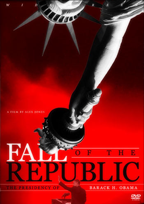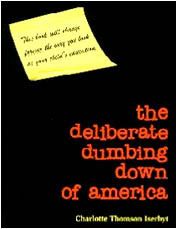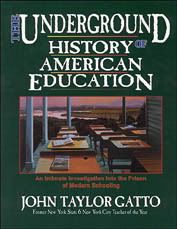A divided U.S. Supreme Court said the constitutional right to bear arms binds states and cities, as well as the federal government, in a decision that raises questions about gun laws around the country.
The ruling, while not creating an unlimited right for individuals to carry weapons, restricts the power of cities and states to regulate firearms. A 5-4 majority said Chicago went too far by banning handguns even for self-defense in the home. The Chicago ordinance is now unenforceable, its mayor said, though the law stays in effect pending lower court proceedings.
The ruling said states and cities can ban possession by convicted felons and mentally ill people and enforce laws against bringing guns into schools or government buildings.
Chicago is the only major city with a blanket handgun ban, after a 2008 Supreme Court decision struck down a similar ban in Washington, D.C., a federal enclave. Jurisdictions with narrower weapons restrictions, including New York City, may now face new legal challenges.
The right to bear arms “is fully binding on the states and thus limits (but by no means eliminates) their ability to devise solutions to social problems that suit local needs and values,” Justice Samuel Alito wrote for the court.
Right to Bear Arms
The justices said a constitutional amendment approved after the Civil War protects the right to bear arms as a key freedom, shielding it from state and local interference.
“It is clear that the framers and ratifiers of the 14th Amendment counted the right to keep and bear arms among those fundamental rights necessary to our system of ordered liberty,” Alito wrote.
Today’s ruling broadens the sweep of the court’s 2008 ruling interpreting the Constitution’s Second Amendment as protecting the rights of individuals, rather than just those of state-run militias. It’s a victory for the National Rifle Association, which joined a group of Chicago residents in challenging the city’s laws.
The ruling “is a vindication for the great majority of American citizens who have always believed the Second Amendment was an individual right and freedom worth defending,” Wayne LaPierre, the group’s executive vice president, said in a statement.
Gun Control Advocates
Gun control advocates said the ruling isn’t likely to lead to the widespread invalidation of gun laws.
“The gun lobby and gun criminals will use it to try to strike down gun laws, and those legal challenges will continue to fail,” said Paul Helmke, president of the Brady Center and Brady Campaign to Prevent Gun Violence.
Chicago Mayor Richard M. Daley said he was “disappointed but not surprised.” He said the ruling made his city’s 28-year- old ban “unenforceable.”
New York Mayor Michael Bloomberg said in a statement that the two high court rulings mean that “we can work to keep guns out of the hands of criminals and terrorists while at the same time respecting the constitutional rights of law-abiding citizens.” The mayor is founder and majority owner of Bloomberg News parent Bloomberg LP.
Today’s decision, which came on the last day of the court’s nine-month term, divided the justices along lines that have become commonplace. Chief Justice John Roberts and Justices Antonin Scalia, Anthony Kennedy and Clarence Thomas joined Alito in the majority.
Breyer’s Dissent
In dissent, Justice Stephen Breyer faulted the majority for “transferring ultimate regulatory authority over the private uses of firearms from democratically elected legislatures to courts or from the states to the federal government.”
Justices John Paul Stevens, Ruth Bader Ginsburg and Sonia Sotomayor also dissented.
The high court’s 2008 decision said the right to bear arms had limits. Alito wrote that today’s decision reaffirmed those limits, saying the ruling “does not imperil every law regulating firearms.”
Like the rest of the Bill of Rights, the Second Amendment was originally aimed only at the federal government. The Supreme Court in the 19th century refused to apply the Second Amendment to the states.
More recently, the court has said that some, though not all, of the rights in the first eight amendments are so fundamental that they are “incorporated” into the 14th Amendment’s due process clause, which binds the states.
‘Fundamental Rights’
“Given that other fundamental rights - the freedom of speech, the freedom of religion, and so on - limit both state and national governments, it would have been strange for the court to rule otherwise here,” said Rick Garnett, associate dean and constitutional law professor at the University of Notre Dame in South Bend, Indiana.
In saying that the Second Amendment is incorporated as well, the court declined to usher in a major doctrinal shift, as some litigants had sought. Advocates across the ideological spectrum urged the justices to rely on the privileges-or- immunities clause, a long dormant provision in the 14th Amendment.
Such a step might have reinforced established constitutional rights including abortion and opened the door to broader protection of other guarantees, including property rights.
The case “is likely the last great incorporation battle,” said Adam Winkler, a constitutional law professor at the University of California at Los Angeles. “In one sense, this is the last battle of the Civil War. The 14th Amendment was designed to ensure that all Americans enjoyed the same fundamental rights, including the right to bear arms. Now the Second Amendment applies to everyone.”
The Chicago ban was challenged by four residents, including Otis McDonald, a 76-year-old homeowner in the Morgan Park neighborhood on the city’s South Side.
McDonald, who says his home has been broken into at least three times, says he wants to keep a handgun by his bed for protection.
The case is McDonald v. City of Chicago, 08-1521.
Source











